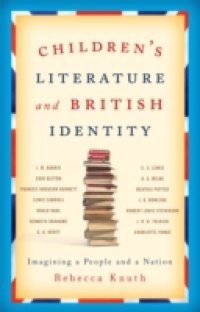For more than 250 years, English children's literature has transmitted values to the next generation. The stories convey to children what they should identify with and aspire to, even as notions of ';goodness' change over time. Through reading, children absorb an ethos of Englishness that grounds personal identity and underpins national consciousness. Such authors as Lewis Carroll, J. R. R. Tolkien, and J. K. Rowling have entertained, motivated, confronted social wrongs, and transmitted cultural mores in their worksfunctions previously associated with folklore. Their stories form a new folklore tradition that provides social glue and supports a love of England and English values. In Children's Literature and British Identity: Imagining a People and a Nation, Rebecca Knuth follows the development of the genre, focusing on how stories inspire children to adhere to the morals of society. This book examines how this tradition came to fruition, exploring the works of several authors, including: Robert Baden-PowellRobert BallantyneJ. M. BarrieEnid BlytonAngela BrazilFrances Hodgson BurnettRandolph CaldecottLewis CarrollRoald DahlDaniel DefoeCharles DickensMaria EdgeworthKenneth GrahameKate GreenawayG. A. HentyThomas HughesCharles KingsleyRudyard KiplingC.S. LewisA. A. MilneHannah MoreE. NesbitJohn NewberyGeorge OrwellBeatrix PotterArthur RansomeFrank RichardsJ. K. RowlingAnna SewellRobert Louis StevensonJ. R. R. TolkienP. L. TraversSarah TrimmerCharlotte Yonge Evaluating the connection between children's literature and the dissemination and formation of identity, this book will appeal to both general readers and academics who are interested in librarianship, English culture, and children's literature.

